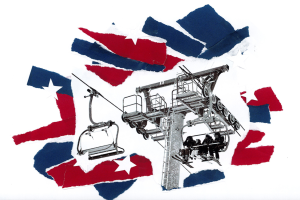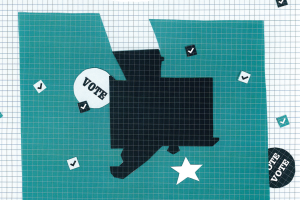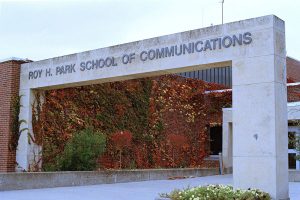Standards & Practices
Business hours
The Ithacan office (Park 220) is open Monday through Thursday from 9 a.m. to 5 p.m. and Friday from 9 a.m. to 3 p.m. during the academic year. The office is closed during academic breaks.
Corrections and takedown policy
The Ithacan welcomes notifications concerning errors in fact that warrant correction. These can be emailed to [email protected]. In cases where inaccuracy has been determined, the story will be corrected and an editor’s note indicating the place and manner of that correction will be indicated at the bottom of the story online and on Page 2 of the print edition.
With those exceptions, content published by The Ithacan, either in print or online, is considered part of the historical record and will not be altered or removed from the paper’s website, either in part or as a whole, unless the information is later found to be false or puts someone’s safety at risk by remaining on our site. All takedown requests will be addressed on a case-by-case basis, with the current editor-in-chief making the final decision.
Opinion policies
Columns — Opinion pieces regularly published by the paper and represent solely the opinion of the author.
Guest Commentary — A commentary offers the opinion of someone in our community who has expertise or authoritative knowledge about the issue. The purpose is to introduce a diversity of opinion to our readers, and therefore, the views presented in commentaries do not necessarily reflect the opinions of the editorial board. All commentaries must:
- Convey a clear message
- Be written by an individual or group who has an educated opinion or is an authority on a specific subject
- Be between 650-750 words. Whether more or less space is allotted is at the discretion of the editor
Staff Commentary — Similar to a guest commentary in criteria, except it is written by a contributing writer before they’ve become a staff writer. Staff commentaries function primarily as a “tryout” for a column before becoming a staff writer. Other staff members not going through a tryout for a column may publish up to one commentary during their tenure with The Ithacan.
Editorial — An editorial is an article that is written solely by the opinion editor. The Ithacan’s editorials offer an informed point of view on the most important issues in the news. While they are always based on factual information, editorials themselves are not news stories.
Reviews — Reviews represent the opinion of the reviewer, and not that of The Ithacan editorial board.
Letter to the editor — Letters to the editor must be 250 words or fewer and submitted to [email protected] or dropped off in The Ithacan office (Park 220) by 5 p.m. Monday to appear in that Thursday’s edition of the paper.
Editorial cartoon — Editorial cartoons reflect the content in the editorials. The cartoon’s design is decided by the opinion editor and cartoonist, independent of the rest of the editorial board.
Comment moderation
The Ithacan allows readers to comment on content on the website, with a few exceptions:
- Anonymous comments are prohibited.
- Comments promoting violence, hate speech or personal attacks are prohibited.
- Comments using obscene or vulgar language are prohibited.
- Material that is defamatory, libelous or infringes on a copyright or trademark is prohibited.
- Comments made impersonating someone else are prohibited.
- Links to disreputable sites are prohibited.
Sourcing policies
Ithacan reporters are expected to prioritize conducting interviews either in person or over the phone. This allows for more natural reactions from sources, promotes relationship-building and trust, and provides more room for follow-up questions. Email interviews should be a last resort or an option to accommodate a source with differing abilities. There is a minimum of three sources for every reported Ithacan article, except “minis,” which should be followed up with more in-depth reporting on a case-by-case basis.
Recording interviews — Ithacan staff members are required to record audio of all in-person and phone interviews in order to directly quote sources and avoid misquoting them. If a source denies your request to record the interview, consult with your editor and the editor-in-chief before proceeding.
On the record — Everything a source says can be published and attributed directly to the source by name and title. “To avoid confusion and problems, sources and journalists should assume everything is on the record unless there is communication between the two,” according to Poynter.
Off the record — “A source should ask a reporter first if something can be off the record,” according to Poynter. “Then the reporter can agree or refuse. The source then can decide whether or not they want to share that information. If the reporter agrees to an off-the-record request, the ethical thing to do is not report or even repeat that information. Off-the-record comments are supposed to remain strictly between the source and the reporter.” If a reporter does not agree to an off-the-record request, then it is not considered off the record.
On background — “Typically, that means a source shares information that a journalist is free to use with one caveat: The journalist should not attribute that information to a specific or named person,” according to Poynter. “Again, the agreement should be made before the source reveals the information.”
Direct quotes — Readers can safely assume that every word between quotation marks is what the speaker said. Obvious detractors like “um” and false sentence starts are deleted, and capitalization, punctuation and spelling are formatted for consistent style. If needed, words will be added sparingly in square brackets to aid in clarifying the source’s meaning. In cases where the writer is referencing a press release or something a source wrote, the information will be attributed with the indicator, “source stated” and no edits will be made to the written quote. In all instances, the intention of the original quote will be preserved. If it’s deemed necessary to remove part of a quote for length or any other reason, ellipses will be used to indicate that.
Paraphrased quotes — In some instances, a source’s words may be paraphrased and incorporated into the body of a paragraph rather than directly quoted. This may be done to rephrase awkward sentence construction or grammar that would distract from the information provided by the source or to make information more concise. In all instances, the intention of the original quote will be preserved.
Referencing scholarly or media sources — Any information gathered from a scholarly source, government website, or news or broadcast report will be attributed to that source. However, attribution of information to another publication does not absolve The Ithacan from spreading misinformation. In other words The Ithacan’s reporting standards are also applied to any outside publications’ information referenced in The Ithacan.
Anonymous sources — The use of unidentified sources is reserved for situations in which the newspaper could not otherwise print information it considers newsworthy and reliable. Reporters and editors should discuss any promise of anonymity with the editor-in-chief before it is made or before the reporting begins on a story that may result in such a commitment. While the identity of a source may be withheld in the story, it is always known to the reporter, section editor and editor-in-chief. We defer to the Associated Press style rule of providing readers with the reasoning for granting anonymity.
Fact-checking
Fact-checking is performed on all content, including opinion pieces, by our copy editing staff. For concerns about incorrect facts, please email [email protected].
Photography and illustrations
All photography used in The Ithacan depicts reality. Photo captions will always be used to explain the context of the image. In some cases, a photograph may be used to represent an issue, idea or concept. These images will be clearly labeled as photo illustrations, including instances where photos have been posed or digitally altered to enhance their visual effect.
AI policy
This is an excerpt. Read our full AI policy.
Generative artificial intelligence is the use of large language models to create something new, such as text, images, graphics and interactive media. These terms will be referenced throughout this policy:
Generative AI: A type of artificial intelligence that creates new content, such as text, images, or media, by interpreting and generating based on input data.
Large language models (LLMs): AI systems trained on vast datasets of text to understand and generate human-like language, and is the information backbone that powers Generative AI.
AI prompt: A specific input or instruction provided to an AI tool to generate a desired output.
Hallucination: The phenomenon where AI generates information or responses that are fabricated, inaccurate, or not grounded in fact.
Training data: The dataset — articles, research papers or social media posts — used to teach an AI model patterns, relationships and knowledge for making predictions or generating content.
Although generative AI has the potential to improve newsgathering, it also has the potential to harm journalists’ credibility and our unique relationship with our audience.
As we proceed, the following five core values will guide our work: transparency, accuracy and human oversight, privacy and security, accountability and exploration. These principles apply explicitly to the newsroom and throughout other non-editorial departments, including advertising and development.
Additionally, The Ithacan acknowledges the energy demands associated with training and deploying large-scale AI systems. As part of our commitment to sustainable journalism, we recognize that responsible AI use includes minimizing our environmental footprint.
Our Commitment to Community
The Ithacan strives to provide fair, accurate coverage centered on the issues that affect the college and the surrounding area. Our community is our purpose. We hope to build relationships with our readers and sources and earn your trust. The Ithacan Community Guide explains our policies, ethical standards and reporting processes and provides answers to common questions we receive from community members. We hope this guide provides transparency about our reporting and helps our community feel more prepared to engage with our staff. We will continue to add to the community guide as we receive feedback or improve our initiatives.
Last updated Fall 2025






